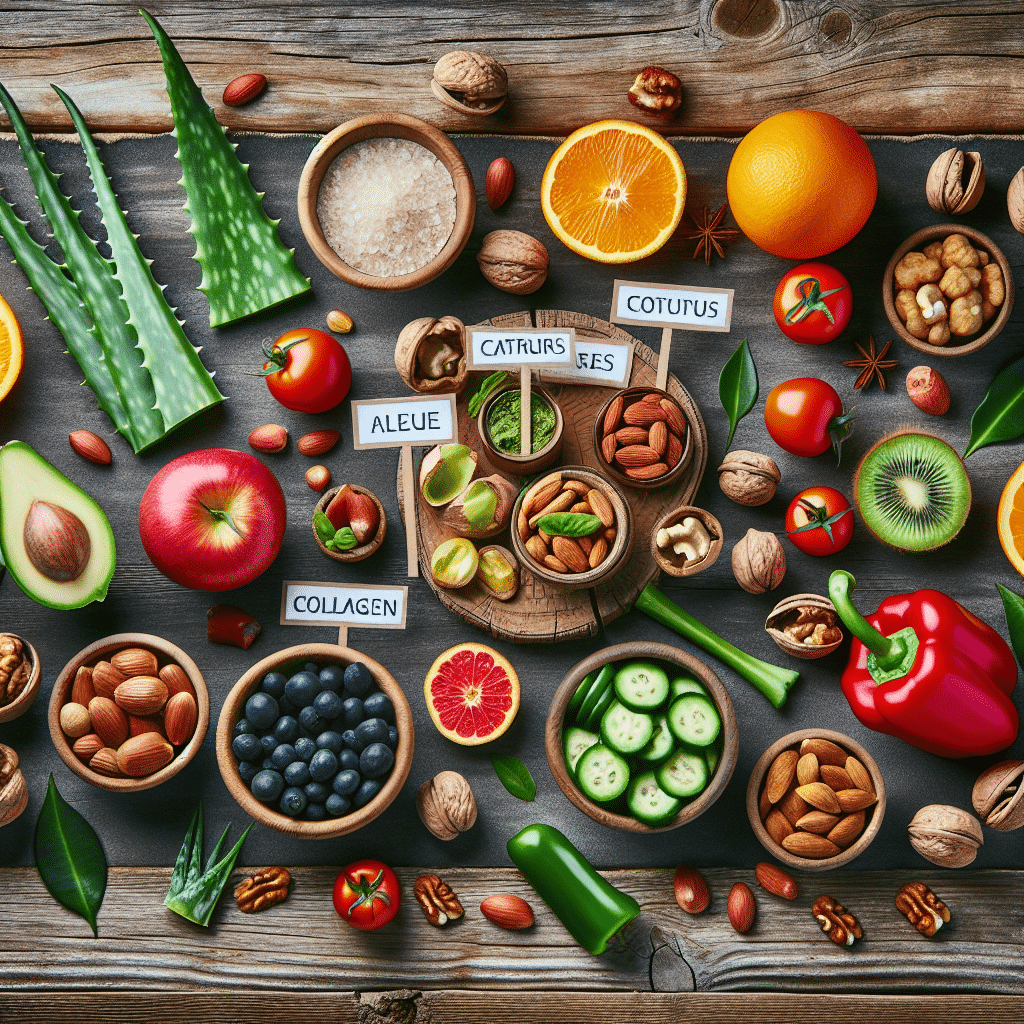Vegan Source of Collagen: Nature’s Beauty Secret
-
Table of Contents
- Vegan Source of Collagen: Unlocking Nature’s Beauty Secret
- Understanding Collagen and Its Importance
- The Rise of Vegan Collagen
- Plant-Based Precursors to Collagen
- Scientific Advances in Vegan Collagen
- Benefits of Vegan Collagen
- Case Studies and Research
- Consumer Experiences with Vegan Collagen
- Conclusion: Embracing Vegan Collagen
- Discover ETChem’s Protein Products
Vegan Source of Collagen: Unlocking Nature’s Beauty Secret

Collagen is often hailed as the fountain of youth for its vital role in maintaining skin elasticity, joint health, and overall vitality. Traditionally sourced from animals, collagen has been a staple in the beauty and wellness industries. However, with the rise of veganism and ethical consumerism, there is a growing demand for plant-based alternatives. This article delves into the world of vegan collagen, exploring its benefits, sources, and why it’s becoming nature’s new beauty secret.
Understanding Collagen and Its Importance
Collagen is the most abundant protein in the human body, providing structure to our skin, bones, tendons, and ligaments. It’s essential for maintaining youthful skin, healthy hair, and strong nails. As we age, our body’s natural collagen production declines, leading to signs of aging such as wrinkles and joint pain.
The Rise of Vegan Collagen
For those following a vegan lifestyle or with concerns about animal welfare and sustainability, traditional collagen sources are not an option. This has led to the development of vegan collagen, which is derived from various plant-based ingredients and offers a cruelty-free alternative to conventional collagen supplements.
Plant-Based Precursors to Collagen
While true collagen cannot be found in plants, certain plant-based foods and extracts can provide the necessary amino acids and nutrients that support the body’s own collagen production. Here are some of the top vegan sources:
- Vitamin C-rich Fruits and Vegetables: Vitamin C is crucial for collagen synthesis. Citrus fruits, berries, and leafy greens are excellent sources.
- Legumes: Beans, lentils, and chickpeas contain lysine, an amino acid that’s important for collagen production.
- Nuts and Seeds: Almonds, pumpkin seeds, and chia seeds are rich in protein and provide zinc, another key nutrient for collagen formation.
- Garlic: High in sulfur, garlic helps prevent collagen breakdown and supports collagen production.
Scientific Advances in Vegan Collagen
Recent scientific advancements have led to the creation of bio-identical vegan collagen through fermentation processes using genetically modified yeast and bacteria. This biotechnology allows for the production of collagen peptides that are structurally similar to those found in animal-derived collagen.
Benefits of Vegan Collagen
Vegan collagen offers several advantages over its animal-based counterpart:
- Sustainability: Plant-based collagen reduces the environmental impact associated with animal agriculture.
- Ethical Considerations: It provides a cruelty-free alternative that aligns with vegan and ethical consumer values.
- Allergen-Free: Vegan collagen is free from common allergens found in animal collagen, such as fish, shellfish, and eggs.
Case Studies and Research
While research on vegan collagen is still emerging, several studies have shown promising results. For instance, a study published in the Journal of Agricultural and Food Chemistry found that certain plant extracts could stimulate collagen production in the skin. Another study in the International Journal of Molecular Sciences highlighted the potential of genetically engineered collagen as a safe and effective alternative to animal-derived collagen.
Consumer Experiences with Vegan Collagen
Anecdotal evidence from consumers who have switched to vegan collagen often report improvements in skin texture, reduced joint pain, and an overall sense of well-being. These personal accounts, while not scientific proof, suggest that vegan collagen can be a viable option for those seeking plant-based health and beauty supplements.
Conclusion: Embracing Vegan Collagen
Vegan collagen is more than just a trend; it’s a sustainable, ethical, and potentially effective alternative to animal-derived collagen. By incorporating plant-based sources of collagen-boosting nutrients into their diets or opting for bioengineered vegan collagen supplements, individuals can support their body’s collagen production while adhering to their ethical beliefs.
Discover ETChem’s Protein Products
If you’re looking for high-quality protein products, including vegan options, ETChem is a company worth considering. Their extensive range of collagen products caters to various industries and dietary preferences, ensuring that you can find the right solution for your protein needs.
About ETChem:
ETChem, a reputable Chinese Collagen factory manufacturer and supplier, is renowned for producing, stocking, exporting, and delivering the highest quality collagens. They include marine collagen, fish collagen, bovine collagen, chicken collagen, type I collagen, type II collagen and type III collagen etc. Their offerings, characterized by a neutral taste, instant solubility attributes, cater to a diverse range of industries. They serve nutraceutical, pharmaceutical, cosmeceutical, veterinary, as well as food and beverage finished product distributors, traders, and manufacturers across Europe, USA, Canada, Australia, Thailand, Japan, Korea, Brazil, and Chile, among others.
ETChem specialization includes exporting and delivering tailor-made collagen powder and finished collagen nutritional supplements. Their extensive product range covers sectors like Food and Beverage, Sports Nutrition, Weight Management, Dietary Supplements, Health and Wellness Products, ensuring comprehensive solutions to meet all your protein needs.
As a trusted company by leading global food and beverage brands and Fortune 500 companies, ETChem reinforces China’s reputation in the global arena. For more information or to sample their products, please contact them and email karen(at)et-chem.com today.

